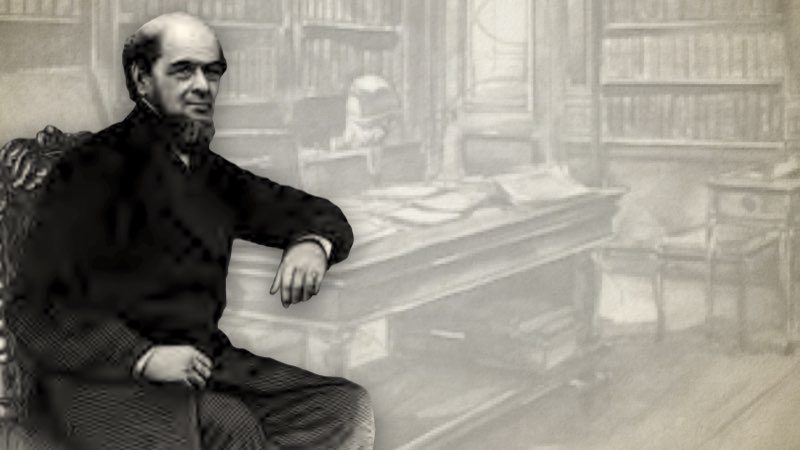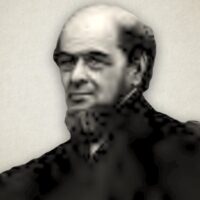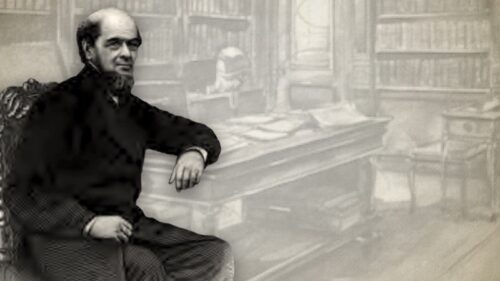
The Life And Ministry Of Septimus Sears
The Sower 1880:
The life of every gracious man has in it something worthy of record; for, while all are brought to know the Lord (Jer. 31:34), and so possess “eternal life” (John 17:3), the time it may take and the means used to that end greatly vary. Some are called, like Josiah, very early to seek the Lord God of their father; while others, although more rarely, are convinced of sin and saved by grace, like the dying thief, at the eleventh hour. The prayers of some may receive as speedy an answer as Saul’s did, who, in three days after his call, was manifested as a brother to Ananias (Acts 9:17); whereas others, like Cornelius, shall be unknown unto the disciples for years, until at length he is told, “Thy prayers and thine alms are come up for a memorial before God” (Acts 10:4), and thereupon he hears the Gospel and receives a full remission of sin.
Some experience at first much of the powerful ministration of the law, disclosing the heart’s depravity, while others, as Job, Hezekiah, and Jonah, learn more of this in subsequent experiences. Then the Lord’s dealings in providence and His leadings in grace are so diversified that, as Mr. Hart says, “there is no chalking out the paths of one child of God by those of another; no laying down regular plans of Christian conversion, Christian experience, Christian usefulness, or Christian conversation.” Therefore, although the Press is ever bringing forth biographies, memoirs, and obituaries of departed saints and crowned warriors, there is ever something fresh to show forth the skill and power of Him who is “wonderful in counsel and excellent in working;” and often, by observing these things even in others (Phil. 2:4), we are made more clearly to “understand the lovingkindness of the Lord” (Ps. 107:43). We are poor contracted creatures, ever trying to drive every one’s course into our narrow groove, so that, by the prayerful perusal of a good man’s, life, comparing it with the Word of God, and contrasting with our own or with the experience of others, we may well say, “There is no searching of His understanding” (Isaiah 40:28).
The Memoir of Septimus Sears, the late beloved Editor of this Magazine [The Sower], brings its “mite” of interest to the “treasury” of biographies which already forms a part of our libraries. Much of the narrative is the reproduction of his own words, showing forth the inner man and outward walk of this dear servant of Christ who rests from his labours, and whose works do follow him.
Called to preach the Word of life when only twenty years of age, and under great physical infirmities, having his head supported by an iron instrument, he attracted large congregations. Though weak in body, he was “strong in the Lord and in the power of His might.” Thus the natural defect in him was made the forerunner of a spiritual effect upon others, so that, where there was a lack, God bestowed more abundant honour (1 Cor. 12:21).
It is manifest that Mr. Sears valued the ministry of others, although his opportunities for hearing might have been but few. On page 93, after speaking of a season of darkness, he relates having had a remarkable blessing under the late dear Mr. Philpot. He says—
Mr. Philpot commenced prayer in these words:—“O God, the Father of all who believe on Jesus;” and a sweet ray seemed to enter my mind. My hope that I believed on Jesus, hence that God was my Father, was revived. He prayed with much humility, unction, and fervour, and I felt my heart could join in his longing desires that the Lord would bless His own Word. He read for a text, “O thou afflicted, tossed with tempest, and not comforted, behold, I will lay thy stones with fair colours, and lay thy foundations with sapphires. And I will make thy windows of agates, and thy gates of carbuncles, and all thy borders of pleasant stones” (Isaiah 54:11, 12). While he described the afflicted, tempest tossed, and not comforted one to whom these gracious promises are made, I felt as if I was sitting for my very portrait, but no great special power accompanied this. At length he spoke of the Lord Jesus, the heavenly Man, as comparable to the sapphire, a stone of a heavenly blue colour, and then very solemnly inquired whether God had ever laid His dear Son beneath us as our souls’ foundation. I can never describe what I felt. A beam from heaven shone upon my path; a sweet consciousness that Jesus was my foundation filled my soul. My heart melted through. Tears flowed down my face—which are very uncommon with me. I dropped my head down in the seat, and could do nothing but whisper over and over the dear name of Jesus, and say—
“O my Jesus, Thou art mine,
With all Thy grace and power;
I am now, and shall be Thine,
When time shall be no more.”
This was a season never to be forgotten; indeed, throughout his career Septimus Sears was ever learning more of Jesus Christ, whom he desired to know and to be like unto. His afflictions were mingled with many consolations, so that he could say—
“With mercy and with judgment,
My web of time He wove;
But aye the dews of sorrow,
Were lustred with His love.”
Every one who really knew Mr. Sears could discern a very godly man, and one deeply instructed in the truth of God. He was an indefatigable labourer in the Lord’s vineyard, and seems to have been led in the spirit of the advice Mr. Huntington gave to one of his friends in the ministry: “Aim more at being a father than a nurse.” His fervent zeal seemed only to have been checked by his continual afflictions.
To the end of his days he was a sufferer, and everything which disturbed his mind augmented his malady, but he found that “consolation” and “comfort of love” in Christ which more than compensated for all his trials.
The copyright of this volume of 254 pages, published at the low price of 2s. 6d., is the property of Mrs. Sears. The type is very good, and the volume is beautifully finished. Many of our readers have it, and prize it for its intrinsic worth and life-like steel portrait. It is with a desire that many may receive a spiritual benefit in reading it, and that the dear widow may not incur any pecuniary loss by its publication, that we thus seek for the Memoir a wide circulation.
Septimus Sears (1819-1877) was a Strict and Particular Baptist preacher and writer. In 1842, he was appointed pastor of the church meeting at the Clifton Strict Baptist Chapel, Bedfordshire, a position he held for thirty-five years. He was also editor of two magazines, “The Little Gleaner” and “The Sower”. George Ella wrote of him:
“Septimus Sears, renowned in England as one of the country’s most outstanding pastors and preachers, started his ministry at the age of 20 before taking over Clifton Strict Baptist Church, Bedfordshire which he shepherded from 1842 to his death in 1877. Sears suffered all his life from severe heart trouble and was burdened by long periods of paralysis and typhus. His neck bones were so deformed that he had to wear an iron collar to support his head. Nevertheless, he preached three times on the Lord’s Day and often during the week. He edited two Christian magazines, The Little Gleaner and The Sower, and published many sermons besides a number of popular hymnbooks and poetical works. The invalid pastor-poet established a school for poor children, founded organisations to care for orphans and the needy and erected homes for widows and the aged. He believed that gospel witness should be social and practical as well as spiritual. His labours were immense in the Lord and certainly not in vain.”




